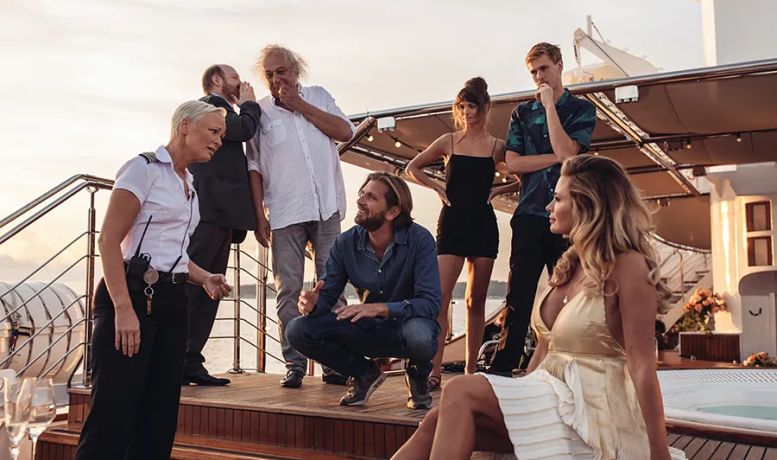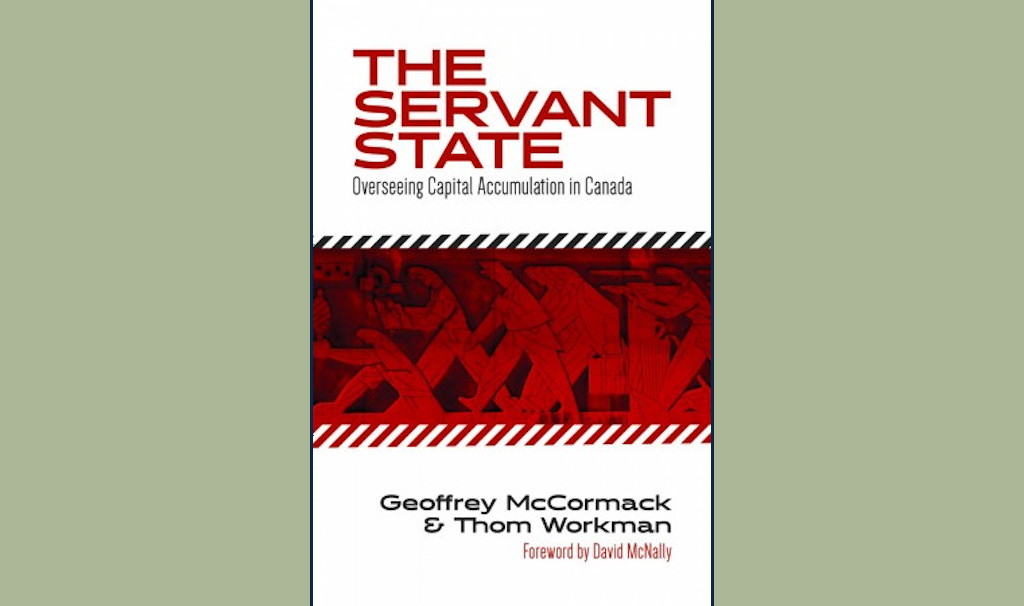The new movie from Danish director Ruben Östlund has the enigmatic title “Triangle of Sadness.” It derives from the suggestion made to Carl, in the role of a male model, that he gets Botox to rid himself of his “triangle of sadness” (the wrinkles that form in the area between one’s eyebrows) in order to rejuvenate his appearance.
The movie has been billed as a biting satire against capitalism and the lifestyles of the super rich. In some ways it is. In other ways, it’s a self-conscious parody with over-the-top cynicism but which draws the laughs. And that’s a good thing. Ultimately, however, Östlund falls into pessimism and does not offer anything like an alternative to present day society.
The first part of the movie opens in the superficial world of high fashion, at an audition of male models where Carl finds that he’s not quite young enough in the eyes to the directors (hence the suggestion of Botox). Östlund makes some obvious and deserved digs at the banality of the fashion world. But his primary interest in this section lies in exploring relationship dynamics and gender roles.
There is a lengthy exposition of a single incident, when the young couple, Carl and successful influencer girlfriend, Yaya, argue about who is pick up the cheque in a fancy restaurant. As the two bicker through the night, it doesn’t reveal much. As one critic remarked, it could have easily served as the basis for a Seinfeld episode 25 years ago.
It’s the second section of the movie that proves more substantial and, importantly, funny. The focus is expanded outward where the young couple take a cruise on a $250-million luxury yacht populated by a miscellany of bourgeois caricatures. Many of these are performed entertainingly, such as Dimitry, a coarse Russian fertilizer mogul, (when asked what he does for a living, he replies “I make shit”)
The yacht trip peaks with a disastrous dinner, during a heavy storm, hosted by the yacht’s captain Thomas Smith, played by Woody Harrelson who likes to relax in his cabin listening to “The Internationale,” As morsel size intricate delicacies are served to the passengers, a storm erupts and the yacht is tossed back and forth leading to sea sickness in the extreme. The guests spew vomit everywhere, accompanied by loose bowels blocking the toilets. The result is a stream of Montezuma’s revenge combined with technicolour yawns coursing around the dining deck.
All the while this is happening, Dimitry, the fertilizer capitalist and Captain Smith engage in drunken debate, trading snappy quotes, on the virtues/vices of capitalism/socialism. Smith denies that he is a Communist – “I am a Marxist” he proclaims. Their conversation may be shallow, but it will amuse those on the political left. Östlund’s contempt for the monied elite comes through clearly. The contempt is amplified as, following the scenes of vomiting and toilets erupting, we see the (mainly Filipino) workers, on hands and knees, cleaning up the stinking mess. Unfortunately, that’s the only hint of class conflict in the story. The problem is that the director is unable to move beyond mockery to any kind of substantive critique, much less to advance a vision for a better society.
This criticism becomes more evident in the third part of the movie. The yacht has been blown up in a terrorist or pirate attack and the survivors find themselves on a desert island. Things seem to be developing into a Lord of the Flies scenario, the novel which tells the story of a group of young boys who find themselves alone on a deserted island and how they try to develop rules and a system of organization but eventually become violent and brutal. In this all-adult variant of the story, the only person with any practical skills is a maid named Abigail who made a brief appearance in part two of the movie as one of the cleaner uppers following the bourgeois meal excesses. She uses her superior practical abilities to control and manipulate those on the island. She takes the one bit of shelter for herself and uses her position to obtain sexual favours from whomever she fancies.
So how are we to read Abigail? It seems that we are invited to see her as a generalized representative of the oppressed but skilled workers. The implication is that, in the final analysis, the lowly working people are just as ruthless or selfish as their oppressors such that the exploited would, if given the chance, exploit right back. It’s essentially conceding the right-wing argument that socialism is fine in theory but, in practice, it doesn’t take account of the greed and selfishness that is supposedly innate to human nature. Of course, humans aren’t all virtuous and angelic but the notion of an innate selfishness is wrong. The overwhelming evidence from archaeologists is that human behaviour, historically and depending on the environment, is marked more by altruism and co-operation than greed and exploitation. Östlund, the director, with his pessimistic conclusion, ends up “reinforcing the very status quo that the rest of the film so viciously satirizes.” says the critic, Keith Watson, in Slant Yes, war profiteers and tax-evading billionaires may be bad, Östlundseems to say, but they’re no better or worse than the workers who suffer exploitation at their hands.
So watch Triangle of Sadness for its humour and its skewering of the rich. But have no illusions that an alternative vision will be promoted. Of course, it’s not the duty of a filmmaker to promote a political agenda but in this case the movie, after a promising start and middle, offers a final act that negates the rest of it.
A more optimistic outlook comes from the real world of yachts and billionaires. The Guardian in a recent article titled “World’s richest celebrate end of summer at €4bn Monaco yacht show.” reported that “ ‘Of course the industry is impacted [by the global economic crisis]’….. ‘But the number of billionaires has grown over the last two years meaning that there has been a rebalance despite the loss of the Russian clientele. Some shipyards are suggesting that the number of serious future clients – aka billionaires – has grown from around 25 to 30, almost all of which are American or Asian.’”
The article concludes with a quote from Pauline, one of thousands of people hired to work at the show as stewards, security guards or to pilot small rigid inflatable boats to transport people around the harbour. “I work at a lot of events, but this is the only one that drives me crazy, it is just so wrong. It’s wrong to be spending all this money on these things, and it’s just terrible for the planet – think how much pollution they make. These are really big buildings on the water. Sometimes I just want to do something to stop it all.”
Pauline has got a better understanding of the situation than does the director of Triangle of Sadness.




